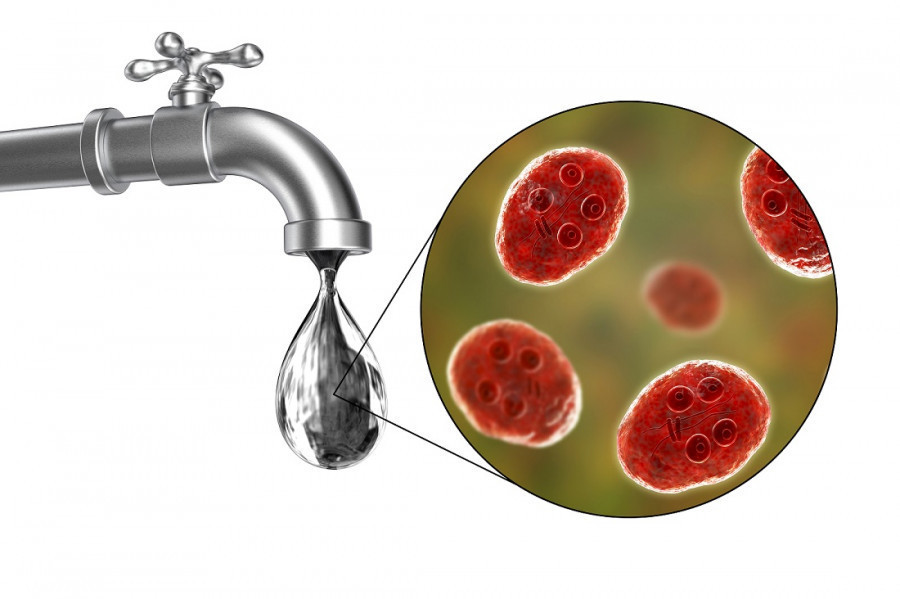Health
Nepal epidemic control body urges health workers to cancel leave
Officials warn of potential outbreaks of waterborne and vector-borne diseases due to floods in the coming days.
Post Report
With monsoon havoc sweeping across the country, the Epidemiology and Disease Control Division has urged health workers to avoid taking leave during the season.
Officials have warned that health facilities could be overwhelmed by patients in the coming days as outbreaks of waterborne and vector-borne diseases are expected, as floodwaters have contaminated most of the drinking water sources.
“We have requested the provincial and local health authorities not to grant leave to health workers during the monsoon season,” said Dr Yadu Chandra Ghimire, director of the Epidemiology and Disease Control Division. “Health agencies have been cautioned about the looming risk of outbreaks of waterborne and vector-borne diseases in the coming days.”
Torrential rainfall started Friday wreaking havoc in various places across the country. At least 14 people have died in disaster-related incidents—nine in landslides and five in floods—since Friday, according to the National Disaster Risk Reduction and Management Authority. Officials said 18 others have been injured, and four people are missing.
Since the monsoon entered the country on June 10, at least 43 people have died in landslides and flood-related incidents. Lightning strikes killed as many as 19 people during this period.
The monsoon season in Nepal is a time of epidemics during which thousands of people across the country become infected with water-borne and vector-borne diseases.
The persistent rainfall that started on Friday not only destroyed houses and inundated settlements but also contaminated drinking water sources.
Health officials warned that health facilities could witness an uptick in the number of viral fever cases, and waterborne diseases—diarrhoea, dysentery, food poisoning, and snake bites—in the coming days.
“We have also requested central hospitals and medical colleges to be prepared for help during disease outbreaks,” said Ghimire. “As we don’t have enough doctors and health workers to deploy to control the outbreaks, we have to seek help from big hospitals and medical colleges.”
Officials at the Ministry of Health and Population said that they have been raising awareness through all available means to inform people of the risks.
“Essential medicines have been stockpiled, health workers have been asked to be ready for deployment to affected areas, anti-snake venom has been supplied to health facilities,” said Dr Prakash Budhathoki, spokesperson at the Health Ministry. “As of Sunday evening, no outbreaks have been reported.”
According to health experts, sources of drinking water generally become contaminated in disaster-hit areas, and people displaced by natural disasters become highly vulnerable to infections with waterborne and vector-borne diseases.
Every year, thousands of people get infected with vector-borne diseases such as dengue, kala-azar, malaria, and scrub typhus during this period.
Last year, at least 20 persons died, and more than 52,000 were infected by the virus, which had spread to all 77 districts. According to data provided by the Epidemiology and Disease Control Division, at least 1,432 people from 73 districts have been infected with the dengue virus since January this year. Among the 73 districts that reported dengue outbreaks, Kathmandu has the highest number of cases: 159.
Public health experts say reported cases could be just the tip of the iceberg, as around 80 percent of those infected are asymptomatic.
Likewise, snakebite incidents and resulting deaths are also common during the season, but the phenomenon, which experts dub “a lurking invisible crisis”, remains grossly neglected.
“Incidents of snakebites have started to surge over the last few weeks,” said Dr Rajiv Jha, director at Provincial Health Directorate of Madhesh Province. “Along with the surge in waterborne and vector-borne diseases in the coming days, we have anticipated a rise in snakebite cases.”
Doctors say the only ways to prevent deaths from waterborne diseases, including diarrhoea, are to raise awareness and ensure safe drinking water.
They say a combination of careful surveys, ensuring safe drinking water, maintaining sanitation and hygiene, social mobilisation and treatment are required to contain the spread of the diarrhoeal infection.




 25.96°C Kathmandu
25.96°C Kathmandu














